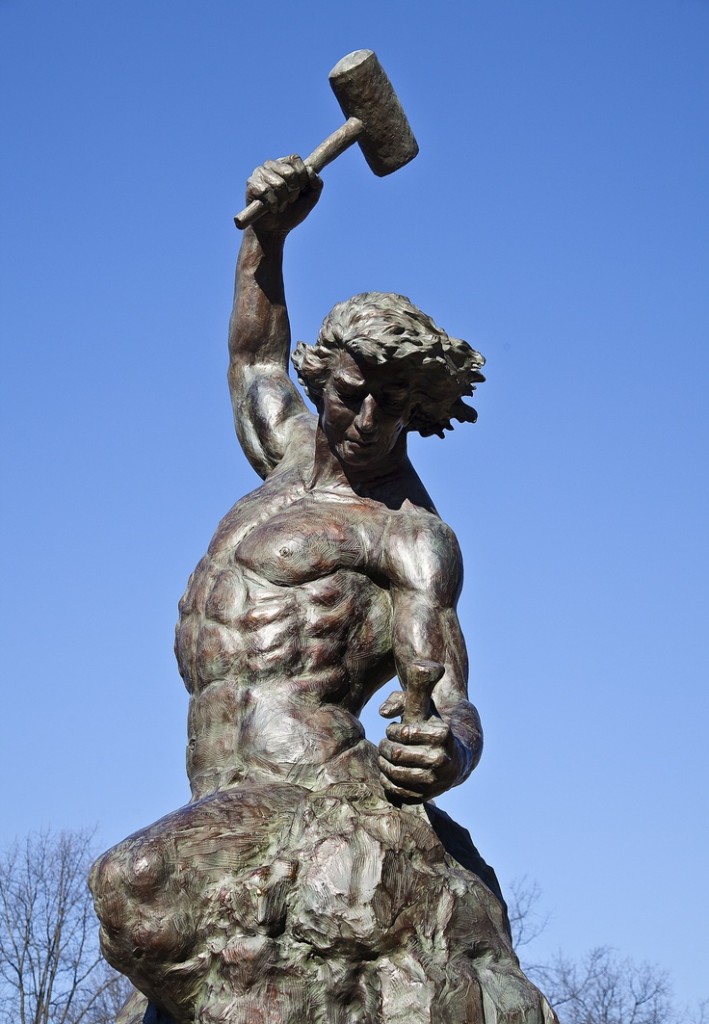Self Made Victorians? January 9, 2016
Author: Beach Combing | in : Modern , trackbackWere there self made men in Victorian Britain? The Oxford Dictionary of National Biography as well as being the single most impressive collection of biographies yet put together is useful in measuring money as for most modern individuals, say from the eighteenth century onwards, the vox-writer has included wealth at death (something recorded in Britain for anyone who passes on with more than a ten pound note in their wallet). This means that it is a relatively simple matter to skim through the names of the good and the great and pick out those who die wealthy from a poor or lower middle class background. So how many poor Victorians made it? Well, consider the list below of Victorians who started from nothing or close to. As on previous occasions on this blog we have used the National Archives converter for money: see a post from a couple of years ago on the limits of this method. For American dollars multiply by 1.5.
Charles Hengler (circus, obit 1887), 60,500 [about three million pounds in today’s money]
Herbert Minton (ceramics, obit 1858), under 70,000 [about 3.3 million pounds in today’s money]
John Mitchell (theatre, obit 1874), under 70,000 [about 3.3. million pounds in today’s money]
Charles Dickens (novelist, obit 1870), under 80,000 [about 3.6 million pounds in today’s money]
Henry Bessamer (steel, obit 1898), 92,500 [about 4.5 million pounds in today’s money]
William Jacks (ironmaster, obit 1907), 112,000 [about 5.5 million pounds in today’s money]
Erasmus Wilson (dermatologist, obit 1884), 264,000 [about 13 million pounds in today’s money]
Henry Harben (banker obit 1911), 398,000 [about 20 million pounds in today’s money]
George Drabble (banker, obit 1899), 438,000 [about 22 million pounds in today’s money]
Samuel Montagu (banker, obit 1911), 1,150,000 [about 55.5 million pounds in today’s money]
Andrew Carnegie (entrepreneur obit 1919), 30,000,000 [about 1.5 billion pounds in today’s money]
It warms the capitalist cockles to learn that men like William Jacks or John Mitchell who started with nix could make extraordinary fortunes in a land of workhouses and controlled suffrage. But by modern standards the limits of social mobility are also striking. Dickens, who was more successful than perhaps any novelist in any culture has ever been only made enough to buy himself, in modern terms, a small cottage on the French Riviera. J.K.Rowling, it goes without saying, will make 3.6 million pounds (5 million dollars) on a deal over breakfast cereal figures. It is also perhaps worth reflecting that Carnegie, the richest man on the planet before the First World War, made his real money in the United States not in ‘the Green and Pleasant Land’.
In nineteenth-century America you could go from log cabin to the White House in a lifetime. In Renaissance Italy you could do it in perhaps a hundred and fifty years. In nineteenth-century Britain the sons of the nouveau riche might enter the Commons or even the Lords, but their fathers, who had made the family fortune, would be embarrassing relicts, covered over with the dirt they’d dug through, as soon as they had died.
Other thoughts on self made men in Victorian Britain: drbeachcombing AT yahoo DOT com



